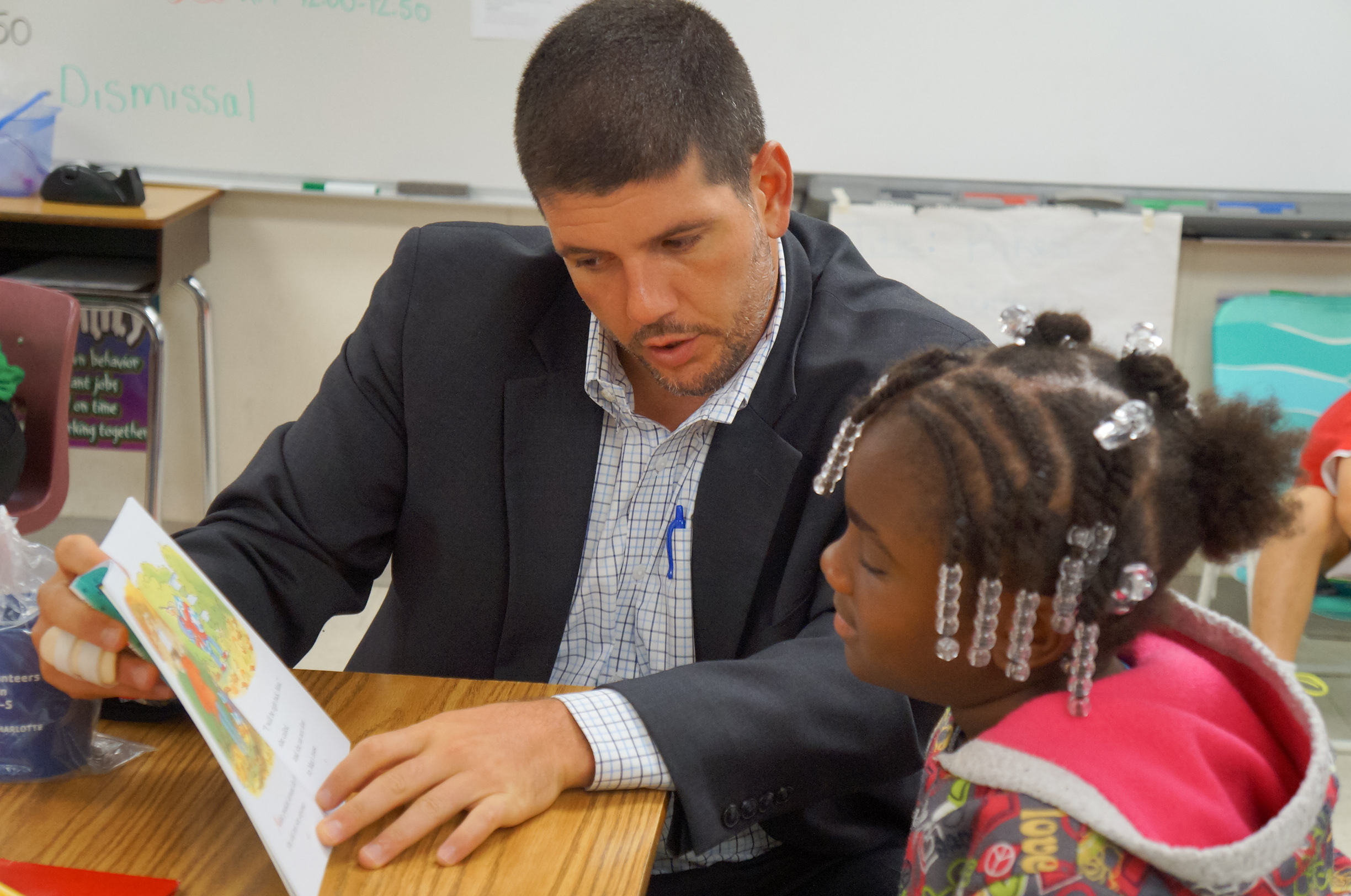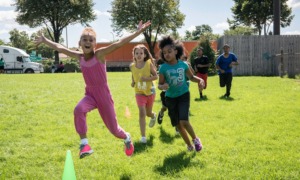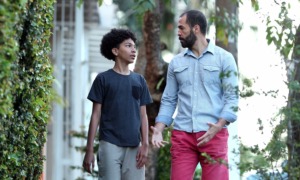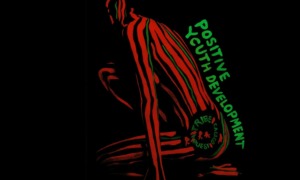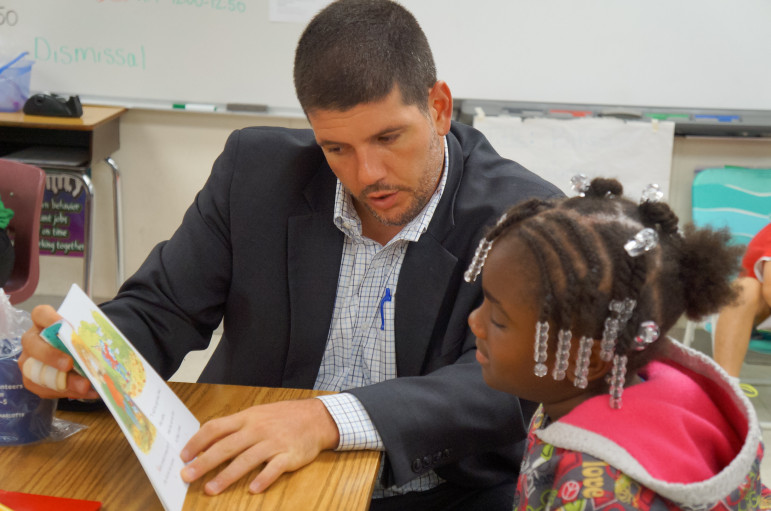
YMCA of Greater Charlotte
Y Readers is an award-winning summer learning program developed by the YMCA of Greater Charlotte (N.C.) for kids at Title l schools who need extra reading help.
Young children bound off the bus on summer mornings at Hickory Grove Elementary School in Charlotte, N.C. They’re coming to summer camp for six weeks — a camp located at their very own school and likely staffed with some of their very own teachers.
They’re in the Y Readers program, a project of the YMCA of Greater Charlotte.
“Their favorite part is the swimming,” said Blair Campbell, director of communications and partnerships at the YMCA of Greater Charlotte. “They don’t even realize they’re going to school because they need to be a better reader,” she said.
Y Readers camps are located at 10 Title I elementary schools in the Charlotte area.
Begun in 1999, the program will serve 592 children this summer. All of them are referred to the camp by their school because they are not reading at grade level. Forty percent are not native English speakers.
Summer Learning Day
The program has become a national model for YMCAs across the nation and expanded to serve 2,013 kids in 25 states. Summer learning programs across the nation are being celebrated Friday by the National Summer Learning Association, which has designated Friday as Summer Learning Day.
[module type=”aside” align=”right”]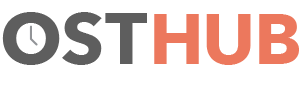 More on Language & Literacy in out-of-school time at the Youth Today Out-of-School Time Research and Resource Hub.[/module]
More on Language & Literacy in out-of-school time at the Youth Today Out-of-School Time Research and Resource Hub.[/module]
Y Readers also received the New York Life Excellence in Summer Learning Award for 2014.
By the end of the six-week program in Charlotte, these rising first- through third-graders will have gained an average of 3.1 months in reading proficiency, based on outcomes measured for the past nine years.
The gain is important.
Prospects are grim for kids who don’t develop adequate reading skills by the end of the third grade. A 2010 report from the Annie E. Casey Foundation found that kids who cannot read proficiently by the end of third grade are four times more likely to drop out of high school.
And legislation recently passed in North Carolina requires schools to hold back third-graders who can’t read proficiently.
A key ingredient
Campbell said the “secret sauce” — the thing that makes Y Readers particularly effective — is the use of certified teachers.
“They already have a rapport with the children and families,” she said.
Children spend 2½ hours each morning on literacy activities using the Four Blocks literacy model, which teaches through reading, writing, speaking and listening activities. They take part in guided reading, self-selected reading, vocabulary work and writing. Four Blocks is based on the idea that all children don’t learn in the same way and that a variety of approaches is best. It does not sort children into reading groups based on ability.
“Teachers like it because they are able to be creative,” Campbell said.
The afternoon is devoted to enrichment activities, including art, music, science and field trips, including trips to the YMCA swimming pool.
A favorite part of morning activity is the adult “reading buddy” who comes in to read with the child, Campbell said. Children “like working with the volunteer one-on-one,” she said. The YMCA of Greater Charlotte has recruited 300 volunteers for this summer.
The program is free to parents. Funding comes from the annual YMCA Community Support Campaign, local corporate and family foundations, Mecklenburg County and United Way, Campbell said.
Only one-third of families across the nation have a child in any summer learning program, according to the Afterschool Alliance’s America After 3 PM report.
Low-income kids are more likely than their higher-income peer to experience the so-called summer slide. They can lose two to three months of reading skills if they don’t have practice during the summer, according to the National Summer Learning Association.


